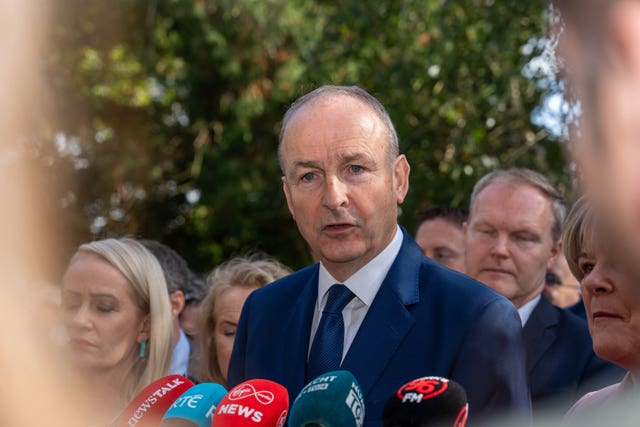Northern Ireland Secretary Hilary Benn and Ireland’s deputy premier Simon Harris will unveil the framework on Friday.
The UK and Irish governments are to publish their long-awaited framework to deal with the legacy of the Northern Ireland Troubles.
The new framework, which will include commitments to fundamentally reform the mechanisms established in the 2023 Legacy Act, will raise expectations that the Irish Government is moving closer to dropping its interstate legal case against the UK.
The proposals will be outlined by Northern Ireland Secretary Hilary Benn and Irish deputy premier Simon Harris on Friday following substantive engagement between the two governments.
Labour came to power with a pledge to replace and repeal the controversial 2023 Legacy Act introduced by the Conservatives, which halted scores of civil cases and inquests into Troubles deaths.

The Act was opposed by victims’ groups and political parties in Northern Ireland, and it led the Dublin government to launch an interstate legal case against the UK claiming it breached the European Convention on Human Rights (ECHR).
The legislation created a new legacy body, the Independent Commission for Reconciliation and Information Recovery (ICRIR), to take over the investigation of all outstanding Troubles cases.
The Act also contained an offer of conditional immunity to some suspects but this was disapplied after legal action by bereaved families.
The new framework is closer to the details of the Stormont House Agreement of 2014, which were never implemented.
It will see the ICRIR fundamentally reformed to become a Legacy Commission, which will investigate Troubles deaths.
A separate body will be created to deal with information recovery.
It is understood there are no proposals for amnesties for suspects within the framework.
The two governments believe the new framework includes proposals which are ECHR compliant and are capable of securing the support of victims and bereaved families.
The framework will include commitments from the two governments. The UK will commit to making changes to the Legacy Act while Irish commitments will be around investigations in its jurisdiction into legacy cases and cooperation with the new Legacy Commission.
It will require new legislation at both Westminster and at the Dail.
Both governments have carried out consultation with victims’ groups and families and will continue to do so once the framework is published.
Armed forces minister Al Carns recently told the House of Commons that the Government would ensure that repealing the Legacy Act would not result in veterans being punished.
He said: “We will ensure that protections are in place to allow us to get to the truth and to ensure that no-one can rewrite history or make veterans suffer any more.”
Speaking on Thursday, Taoiseach Mr Martin said there had not been “full agreement on all issues”.
He said: “One never gets full agreement on all issues but suffice to say that the core issues around immunity, the restoration of civil cases that has happened, but also our concerns in terms of the limits that were there in terms of the original ICRIR review mechanism, that there’s now a much stronger investigative dimension to the framework.
“The Republic will be making a strong contribution financially, and indeed in terms of co-operation and creating capacity within An Garda Siochana and within Department of Justice to respond robustly, comprehensively, to any issues that might arise in the context of legacy issues.”
Mr Martin added: “I’ve been involved in Northern Ireland all of my political life, this issue has not been resolved.
“When I say resolved, we don’t have a credible pathway to help families who are grieving – we’re now into third generations, nephews, nieces and grandsons and granddaughters coming to us looking for closure on many, many cases as a result of the Troubles.
“That’s why I put a lot of work into this with the Tanaiste and we both are of a view that this is an opportunity, with this British government in particular, to bring this to a conclusion.”

